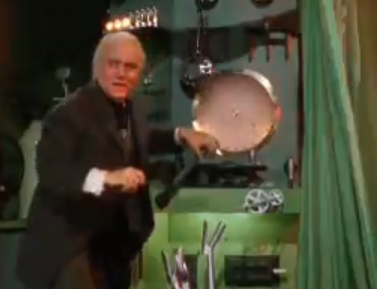A world ruled by Apple


Variations on the disconent theme abounded, but none was more common than the thread which depicted Steve Jobs as the "wizard behind the curtain," with Gates playing the starring role as the Wicked Witch in an upside-down "Wizard of Oz" where the scarecrow never got his brain, the tin man never got his heart, and Dorothy spent the rest of her life shacked up with a flying monkey in Emerald city.
I don't understand this zero-sum worldview. I am perfectly willing to praise Apple or Linux when I feel they are doing something right, and do so on a regular basis in this blog. That's why I have a hard time understanding the need to believe that Gates did nothing right, in spite of abundant evidence to the contrary.
Yes, Jobs and Apple were the first to produce a mass market graphical user operating system, and Gates sure seemed to borrow concepts from that effort. That, somehow, is viewed as bad, even as Jobs "borrowing" of XEROX concepts for his graphical user interface is viewed as good. As someone who is no fan of software patents (approbrium for which seems selectively applied among those who wished a sinkhole had spontaneously opened beneath Redmond sometime in the past 20 years), my personal opinion is that Jobs was as right to borrow from XEROX as Gates was to borrow from Jobs. Ideas are like a pyramid, and pharoah Jobs may have supplied a few stones during its construction, but he built on stacks placed by others before him.
Steve Jobs and Apple computer, however, represent a parallel path through software history that, if it had flourished the way Windows did, would have led to very different outcomes. Imagine, for a moment, what the world would have been like had Apple's approach achieved a 95% market share. What would that world look like?
Remember: Steve Jobs rejected the notion of licensing his operating system to third party hardware vendors, at first actively while in charge of Apple in the 80s, and later reactively in the late-90s when he returned and killed the young clone market for Apple computers.
Such a world would mean there would be no Dell, no HP PC division, no COMPAQ, no Gateway, and no Lenovo. In other words, we wouldn't have had the vibrant hardware competition that existed in the Windows world, competition which drove down the costs of a standard computing architecture.
There would have just been Apple, a company with a historically high-margin approach to hardware sales. What incentive would Apple have had to lower hardware costs?
Practically none, in my opinion - at least not to the degree we saw in PCs, which is why computer history didn't proceed down that path, and why I cited the failure of Apple to license its operating system to third parties as one of the many events over which Gates lacked any kind of control, but from which he benefited immensely.
Microsoft only recently got into the business of making hardware with software that it keeps exclusive to itself (a model that I think deviates from Microsoft core principles, I might add). It's traditional approach to software licensing, however, is clearly the correct one, long term, and is the approach favored by ones of Microsoft's biggest competitors, Linux (a platform which, as a talkbacker rightly noted, takes the cross device approach beyond the confines of x86 architectures).
Jobs had good ideas. So did Gates, and his platform-centric approach made possible tremendous economics of scale in Windows-related hardware. That affected developments at Apple, and constitutes the true reason Jobs chose to shift Mac OS X to the x86 architecture. Apple now benefits from the same hardware economics that Windows does (which is a very sensible business move). Much as Apple fans might hate to admit it, Gates core idea has ended up fundamentally reshaping Apple hardware.
That being said, I think that, today, it would make little sense for Apple to license its operating system to third parties. It's not because I think that, in 2008, a vertically integrated model makes more sense. Rather, a new platform has grown in importance that makes the fact that Jobs likes to keep his toys to himself less of a limit on innovation.
That platform is the Internet. The technologies used by networked systems are incredibly important these days, and help to offset any advantage one platform has as a de facto operating system standard.
But even that, however, is merely an evolution of the theme started by Gates. Software is still the great leveler. There's just a lot more agreement regarding common terms of software discourse, thus making it less necessary for any one company to provide all the terms itself.